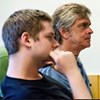heating
Still heating: Unfolding a typology of climate obstruction
In N. Marschner, C. Richter, J. Patz, & A. Salheiser (Eds.), Contested climate justice – Challenged democracy: International perspectives (pp. 59-71). Campus Verlag GmbH Abstract Earth is on a catastryet, there is little sign of halting the rise of global greenhouse gas emissions orstopping the extraction of fossil fuels. Against this background, in this articlewe re-engage with a recently proposed typology supposed to cover three modesthrough which effective climate action has been obstructed. These are, first,primary obstruction, that is, the spread of disinformation and/or denying the veryexistence of anthropogenic climate change. Second, secondary obstruction concernsmore or less deliberate obstruction via opposition to climate action and policiesvia, for example, reference to “the threat of deindustrialisation”. Finally, tertiaryobstruction denotes modes of living which, while not necessarily obstructingeffective climate change intentionally, concerns “living in denial”. Drawing onrecent research and examples, we revisit this typology.
Climate Obstruction - How Denial, Delay and Inaction are Heating the Planet
Routledge, 156 p. InClimate Obstruction: How Denial, Delay and Inaction are Heating the Planet, Kristoffer Ekberg, Bernhard Forchtner, Martin Hultman and Kirsti Jylhä bring together crucial insights fr

Creating happy animals in order to eat them: Jeff McMahan and Tim Campbell
In recent debates about the ethics of eating animals, some have advanced the claim that if people cause animals to exist and give them good lives in order to be able to eat them, then even if the anim
Debating demography
This week the newspaper Upsala Nya Tidning published an article by Joakim Palme, former CEO at the Institute, on how we can meet the challenge of an ageing population. Educating young people is necess
Divine Placebo: Health and the Evolution of Religion
Human Ecology, 47, 157-163 Abstract In this paper, I draw on knowledge from several disciplines to explicate the potential evolutionary significance of health effects of religiosity. I present three mai
Jeff McMahan: Creating Happy Animals in Order to Eat Them
Jeff McMahan is White's Professor of Moral Philosophy at Oxford University, a distinguished research fellow at the Oxford Uehiro Centre for Practical Ethics and a fellow of Corpus Christi College. Abst
Archives of/as resistance: On the justice potential of eyewitness image records documenting the Syrian conflict
Media, Culture & Society Abstract What are the new possibilities of enacting justice through the vast archives of digital eyewitness images and self-representations produced since 2011 by the grassr
Completed: Written meaning
The purpose of the project is to stimulate and discuss knowledge-based text production alongside the dominant academic formats, to contribute to more animated writing and readable texts by scholars, and thereby enlarge their audience.
Completed: How do human norms form and change?
Many societies are dominated by norms that are, in the long run, harmful to their members. How can these norms change?
Julia Driver: Schadenfreude
Professor Julia Driver, Dept. of Philosophy, Washington University in St. Louis.ABSTRACT One typical definition of "schadenfreude" is: "a feeling of enjoyment that comes from seeing or hearing about the








